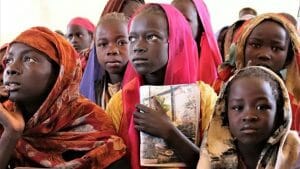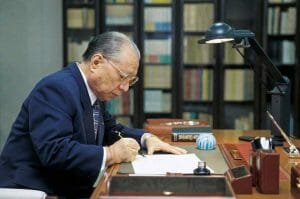

By Yasmine Sherif
NEW YORK, May 8 2023 (IPS)
A civilian student named Saber was caught in the crossfire in Khartoum. He had two choices: either flee and lose everything; or die. But within a moment his option to choose was violently denied: he died.
As a result of the brutal internal armed conflict in Sudan right now, UNHCR projects that 860,000 people will flee across the borders as refugees and returnees into the Central African Republic, Chad, Egypt, Ethiopia, Eritrea and South Sudan. About 50% will be children and adolescents below 18.
Will they arrive alive? They can’t choose. They can only hope.
Making it worse, none of the neighboring countries has the financial and structural capacity to manage such influx, and yet they too, have no choice.
Indeed, an enormous international response will be required to support the Refugee Response Plan developed by 134 partners, including UN agencies, national and international NGOs and civil society groups, and launched on 4 May 2023.
Fleeing children and adolescents will need immediate psycho-social support and mental health care to cope with the stress and trauma of the conflict and perilous escape. They will need school meals. They will need water and sanitation. They will need protection. In the deep despair of their young lives, they will need a sense of normalcy and hope for their future. They need it now and a rapid response to establishing education can meet these needs.
Or to paraphrase ECW’s new Global Champion, the world-renowned journalist, Folly Bah Thibault – who reaffirms the need for speed and quality: the humanitarian-development nexus in action – in her high-level interview in this month’s ECW Newsletter, “We need to deliver with humanitarian speed and development depth.”
The choice is ours.
ECW is now traveling to the region to support host-governments, UN and civil society colleagues who jointly produced the Refugee Response Plan and who are on the ground working day and night in difficult circumstances. ECW will provide support both through an initial First Emergency Response investment and through our global advocacy.
We all have a choice to act now. Our choice is not between losing everything or die. Our choice is between action or inaction. Between humanity and indifference.
Prior to the breakout of the internal armed conflict in Sudan, Samiya*, a 17-year-old refugee student, wrote in her recent Postcard From the Edge: “Education is our future dream. Education is one of the most important factors to progress in life. Through education, people can thrive in their lives; they can also develop their skills and improve their life quality.”
We can help make Samya’s dream come true at the hardest, darkest moment of her life. Samiya does not have that choice. Only, we have that choice. Let us recognize it for what it is: as a privilege or blessing of choosing responsibility and humanity.
Yasmine Sherif is Director of Education Cannot Wait.
IPS UN Bureau


